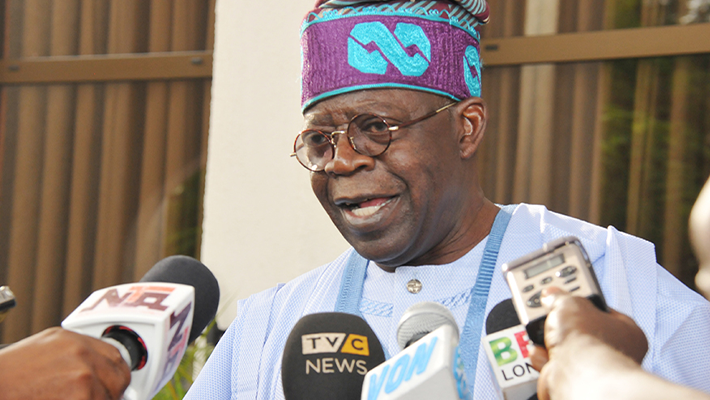President Bola Tinubu has renewed his administration’s commitment to conduct credible elections and the autonomy of the Independent National Electoral Commission (INEC), noting credible elections remain the backbone of every democracy.
Tinubu renewed the commitment on Tuesday in Abuja during the flag-off of the construction of the INEC headquarters in Abuja sponsored by the Federal Capital Territory Administration (FCTA).
In his speech during the short ceremony, he said, “Today’s ceremony is not merely about bricks and mortar but about the strength of our democracy, the independence of our institution, and the future of our electoral integrity.
“INEC has been and remains the backbone of Nigeria’s democratic journey. It’s role in conducting free, fair elections is central to the trust in their government and in our democratic process.
“For this reason, it’s only right that such a pivotal institution is housed in a structure that reflects the dignity, responsibility, and national significance of that institution.
“The new headquarters is a clear signal of our unwavering support for INEC’s autonomy, capacity, and growth to provide not just a home but a conducive hub for planning, training, and transparency in electoral administration.
“Our democracy is still evolving, and as it’s growing, so too is the institution that supports and protects it, we are committed to ensuring that INEC is fully equipped not only in infrastructure but also in law, policy, and resources to carry out its constitutional mandate with courage, fairness, and excellence.”
Also in his remarks, INEC Chairman Prof. Mahmood Yakubu expressed appreciation to the President for not only approving the project but personally attending the ceremony. He also extended gratitude to the President of the Senate, Senator Godswill Akpabio; Speaker of the House of Representatives, Rt. Hon. Tajudeen Abbas; the Minister of the Federal Capital Territory, Ezenwo Nyesom Wike; and other ministers, legislators, political party leaders, security chiefs, and stakeholders who witnessed the event.
He said that the current INEC national headquarters, commissioned in December 1997, has become severely overcrowded due to the Commission’s significant growth over the years. Originally designed for a Chairman, seven National Commissioners, 10 departments, and 500 staff, the headquarters now serves 13 full-time Commission members, 22 departments and directorates, and 1,048 staff members.
“The facilities are overstretched, from offices to meeting rooms and other support infrastructure,” he lamented. “Even general staff meetings are held outside the premises. The Commission had to rent two additional buildings in Wuse Zone II to cope with the expansion.”
He disclosed that the proposed annex, designed by INEC’s technical team and currently being executed by the FCT administration, will feature modern office spaces, meeting and conference rooms, a 1,000-seat auditorium, and facilities for high-tech operations such as the Election Monitoring and Support Centre (EMSC). The building will also house a museum of Nigerian elections, envisioned as a repository of both physical and digital electoral history, providing civic education opportunities for citizens especially students.
Yakubu clarified that the main building opposite the construction site will remain INEC’s national headquarters, while the annex will serve to complement its functions and ease infrastructural pressure.
He described the moment as personally significant, marking the culmination of nearly a decade of advocacy and planning. “After almost ten years of persistent effort, the construction of the INEC Annex Building is finally a reality,” he said.
The INEC boss thanked all stakeholders, including members of the Inter-Agency Consultative Committee on Election Security (ICCES), members of the National Assembly Committees on Electoral Matters, leaders of political parties, civil society groups, and the media. He prayed for the continued success of the Commission’s efforts and reaffirmed its commitment to strengthening Nigeria’s electoral process.



